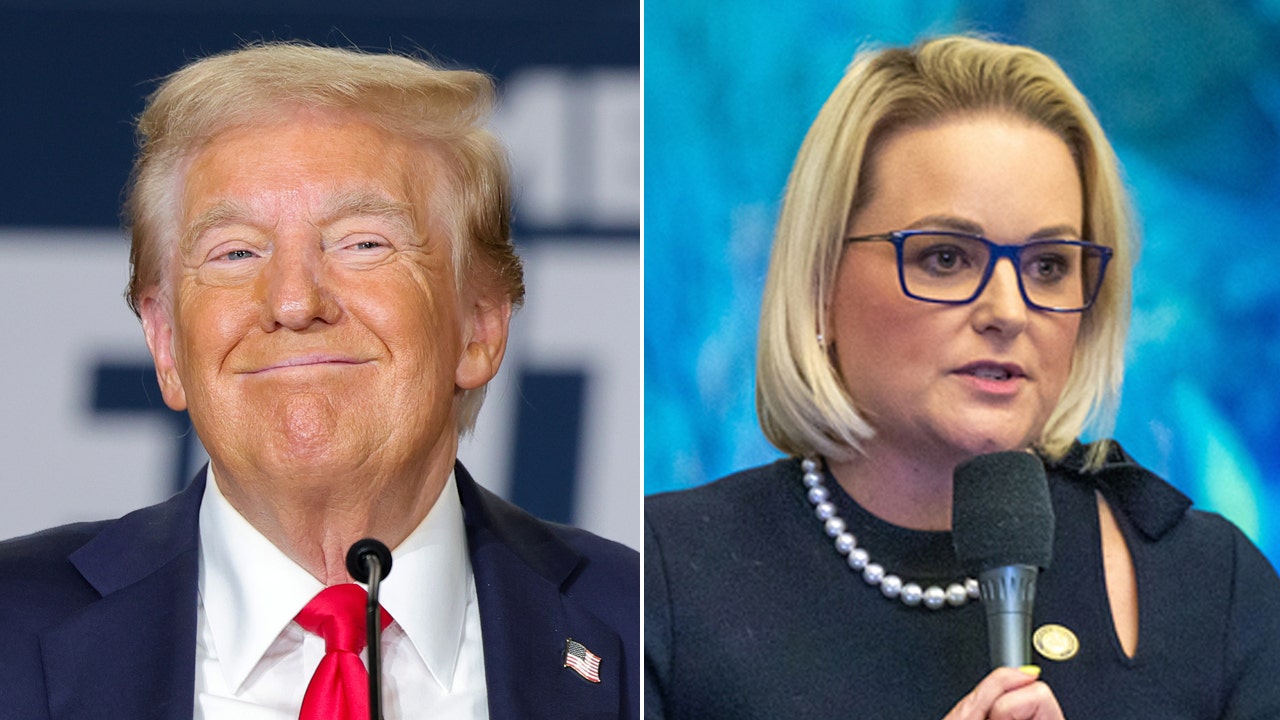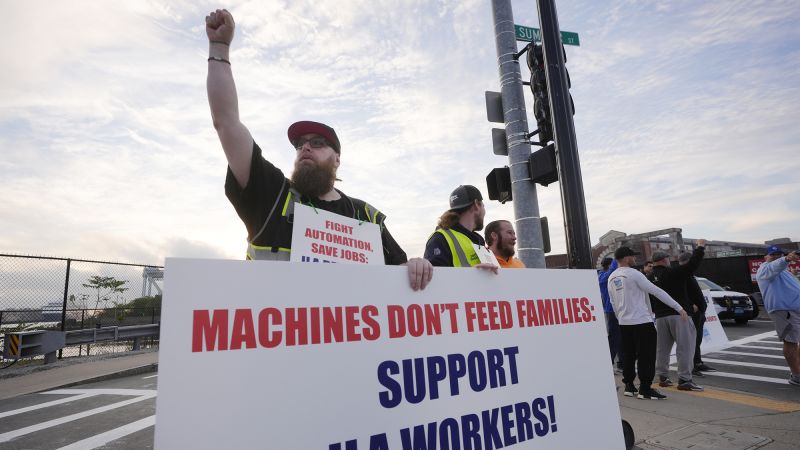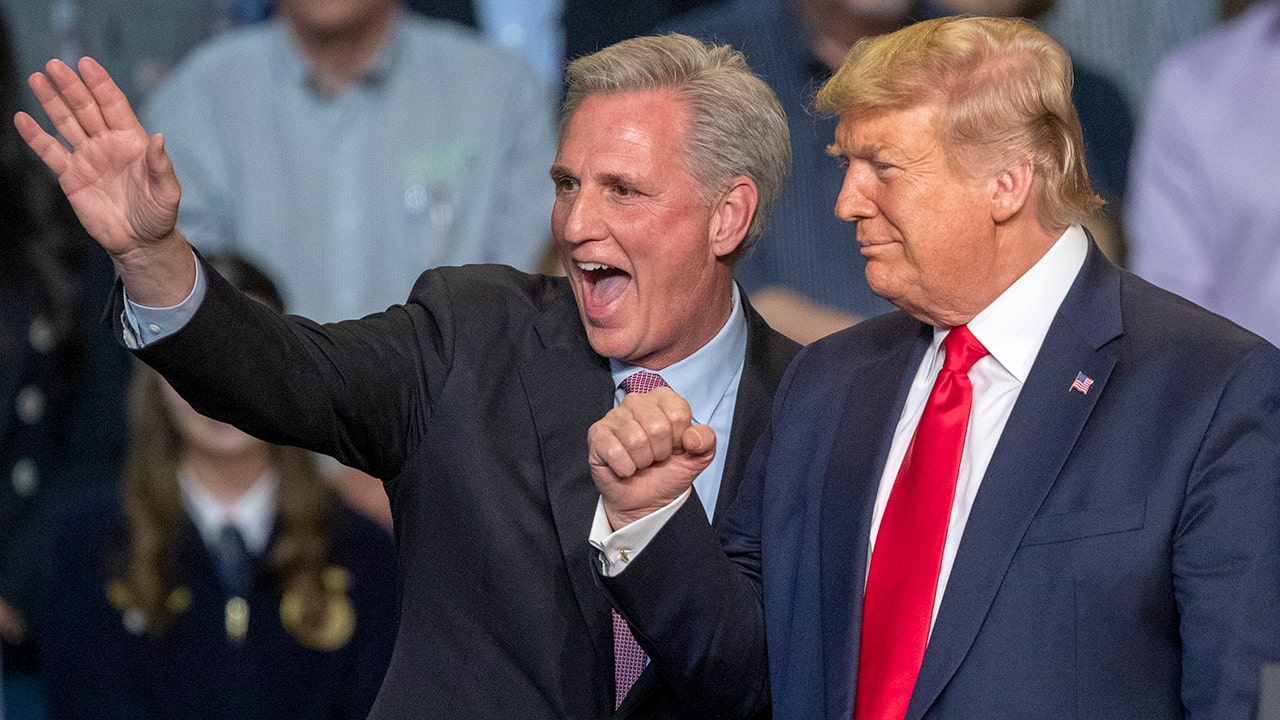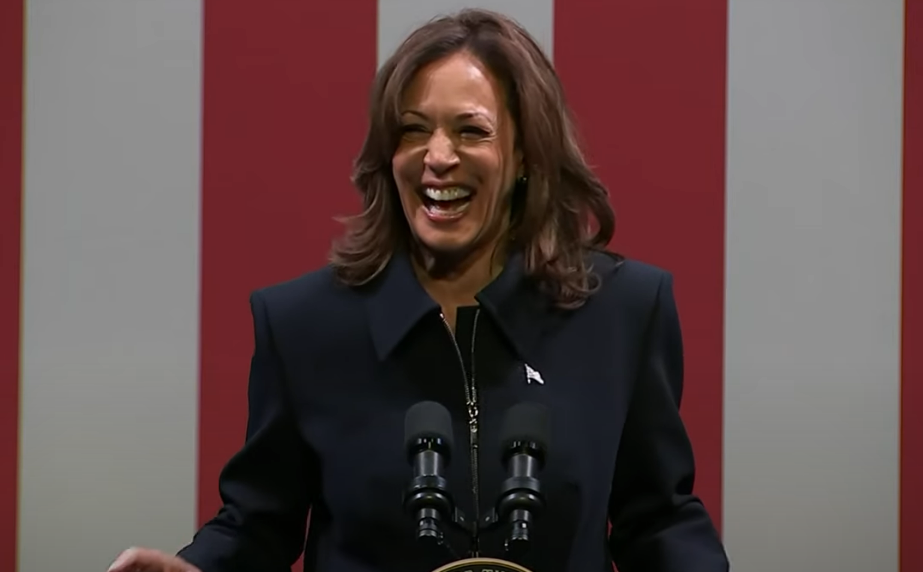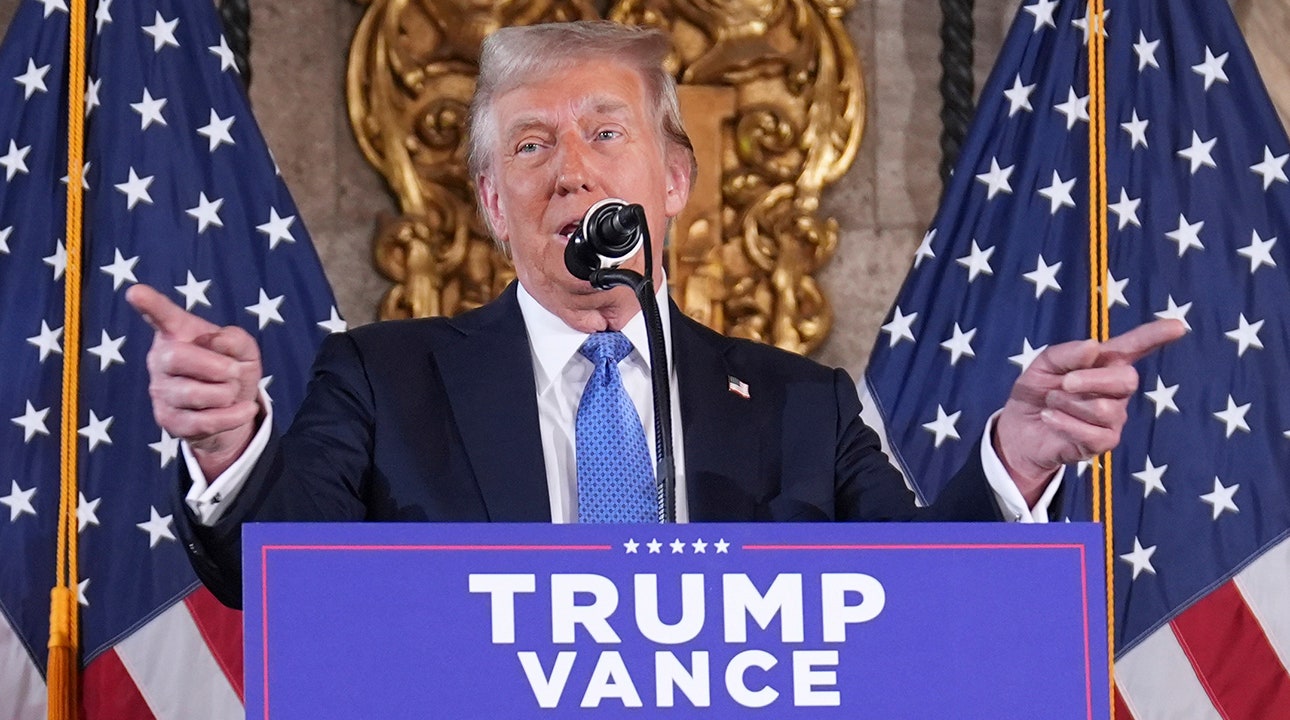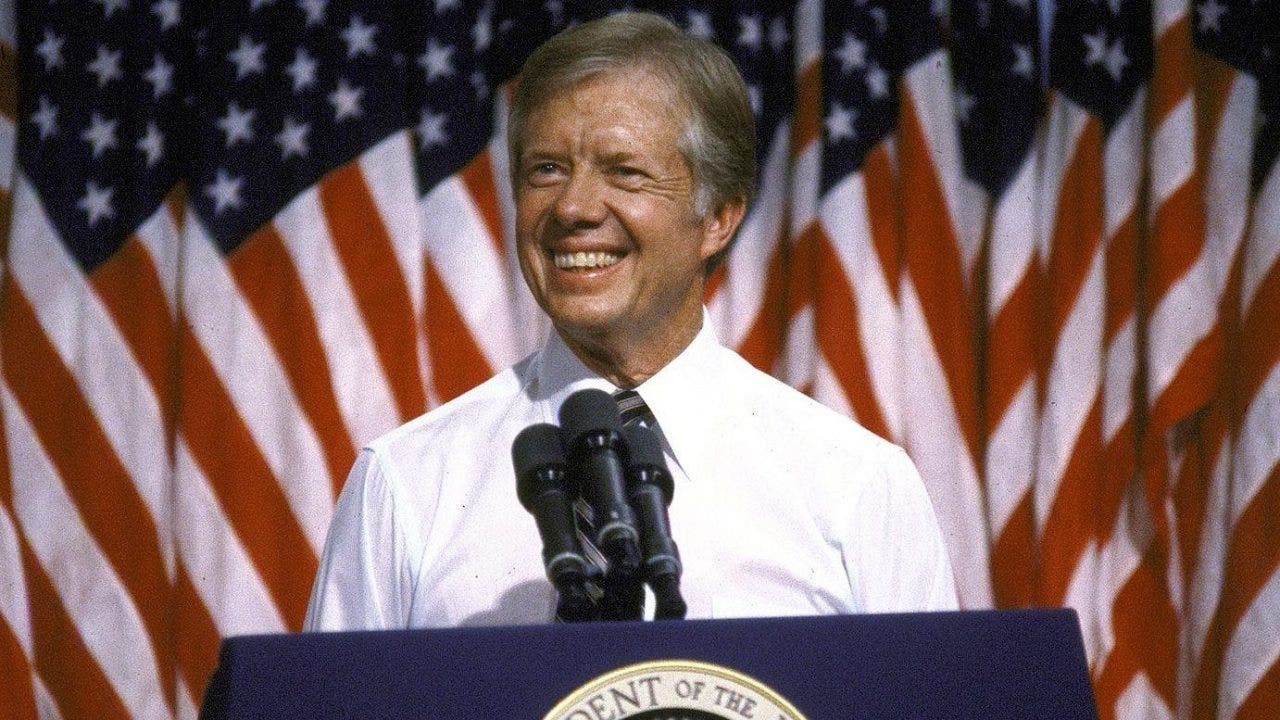After tens of thousands of dockworkers walked off the job at midnight, the Biden administration is confronting the complicated politics – and limited toolkit – of a work stoppage in the home stretch of a critical election season in which the economy has taken center stage.
For weeks, Cabinet-level officials across an array of agencies have been keeping close tabs on the negotiations between the International Longshoremen’s Association and a consortium of companies managing ports along the East and Gulf coasts. White House officials on Friday met with representatives from the consortium, the US Maritime Corporation, to encourage the association to stay at the negotiating table. When it comes to brokering a potential deal, labor experts say the White House has just two tools: Using the bully pulpit and invoking the Taft-Hartley Act, which would force the longshore workers to get back on the job.
President Joe Biden has sent a clear message that he has no plans to do the latter.
“No,” Biden told reporters Sunday when asked whether he would intervene in a potential strike. “Because it’s collective bargaining, and I don’t believe in Taft-Hartley.”
Breaking the strike would be a politically dangerous move for Biden as his vice president, Kamala Harris, runs to succeed him in the Oval Office. Without taking that move, there’s not much else the White House can do.
“The administration is using its bully pulpit, and has been for a while,” says John Porcari, who served as the White House supply chain czar under Biden. “The federal government can help at the margins and can certainly encourage the parties to come together, but they have to do that on their own.”
In the hours after thousands of longshore workers went on strike Tuesday, Biden and Vice President Kamala Harris were “closely monitoring” the strike and any supply chain impacts that could result, a White House official said.
“The president has directed his team to convey his message directly to both sides that they need to be at the table and negotiating in good faith – fairly and quickly,” the official said.
Republicans on the House Transportation and Infrastructure committee sent a letter urging Biden administration to “utilize every authority at its disposal to ensure the continuing flow of goods and avoid undue harm to Americans,” an overture seen as an endorsement of the World War II-era law that allows presidents to end a strike. President George W. Bush applied the act in 2002 to halt an 11-day lockout of union members at West Coast ports.
Labor leaders have suggested that the mere suggestion of government intervention would benefit employers, not workers.
“History tells us that when companies can count on an injunction against a strike, they do not negotiate in good faith to reach an agreement,” AFL-CIO President Liz Shuler wrote in response to the House GOP letter.
Biden directed White House chief of staff Jeff Zients and National Economic Council Director Lael Brainard to convene a meeting Monday with board members of USMX to “urge them to resolve this fairly and quickly – in a way that accounts for the success of these companies in recent years and the invaluable contributions” of International Longshoremen’s Association workers, the official said.
The sticking points in the talks are twofold: Significant wage increases, with the union pointing to the industry’s record profits, and language that protects union jobs from some of the thornier issues facing the industrial workforce, like automation.
Harold Daggett, president of the International Longshoreman’s Association, praised the Biden administration’s efforts, in particular acting Secretary of Labor Julie Su, whom he called “terrific.” “She’s knocking down doors. She’s trying to stop this. She’s trying to get us … fair negotiations,” Daggett said. “It’s the companies that don’t want to sit here and be fair. So that’s why we’re out here fighting for our livelihood.”
Daggett has also previously highlighted his close ties to former President Donald Trump, asking union members to pray for the Republican presidential contender after a July assassination attempt and hailing a positive meeting the two held in late 2023.
An economic stoppage at some of America’s largest ports will cause higher prices and potential shipping snarls just a month before Election Day, complicating both candidates’ pro-worker messages. Harris has touted the Biden administration’s union-friendly policies and could point to the strike as proof that she, like Biden, supports collective bargaining.
In advance of the strike, some importers have been diverting shipments to the West Coast and some retailers have been fast-tracking importing of holiday inventory. In recent weeks, prices for the containers shipping to the East Coast – which contain bananas, clothes and other consumer goods – have been rising, challenging Harris’ recent efforts to pursue a proactive message on the economy.
“It’s undeniable that economic disruption and chaos are bad for the incumbent party – particularly in a year where economic security is on the ballot,” a second former Biden administration official told CNN. “Making people feel economically insecure is not a good thing.”
The severity of the economic impact will depend on the length of the strike. A one-week strike would cost the US economy about $2.1 billion, according to an estimate Monday from the Anderson Economic Group, a Michigan research firm with expertise in estimating the cost of strikes and other disruptions. Most of that would be a $1.5 billion loss in value of some of the goods that wouldn’t be delivered on time, such as perishable goods. Transportation companies, including ship lines and ports, would lose $400 million, while striking workers and those who might be temporarily laid off would lose $200 million in wages.
Ahead of the strike, Biden and Harris were briefed on “agency assessments that show impacts on consumers are expected to be limited at this time, including in the important areas of fuel, food, and medicine,” the White House official said.
The strike comes amid an autumn of uncertainty, with a union representing 33,000 Boeing factory workers going on strike after rebuffing the aircraft manufacturer’s offers. Ford also reached a last-minute deal with a local United Auto Workers chapter to avoid a strike at its Dearborn plant.
How to handle the labor dispute and any economic or supply chain fallout could quickly emerge as an issue on the campaign trail. Port workers began their strike on Tuesday, the same day Ohio Sen. JD Vance and Minnesota Gov. Tim Walz face off in a vice-presidential debate.
The situation could test the messaging of Harris, who has sought to convince voters she’ll improve their economic standing. Harris has embraced a pro-union stance, winning the endorsement of most major unions but is still facing an uphill climb among some rank-and-file members. Trump, whose own labor record has been fodder for Democrats, could try to use any disruptions from a prolonged strike to amplify his arguments that the economy has been mismanaged under Biden and Harris.
The Harris campaign declined to comment.
The Biden administration has taken steps to try to examine the impact of a strike and develop plans to address any supply chain issues. That includes convening the Supply Chain Disruptions Task Force daily, regularly engaging with ocean carriers, retailers, manufacturers, rail and trucking companies, and closely monitoring government data as an election creeps closer.
“In political terms, there’s no good time for a strike,” the former official said.
Read the full article here





